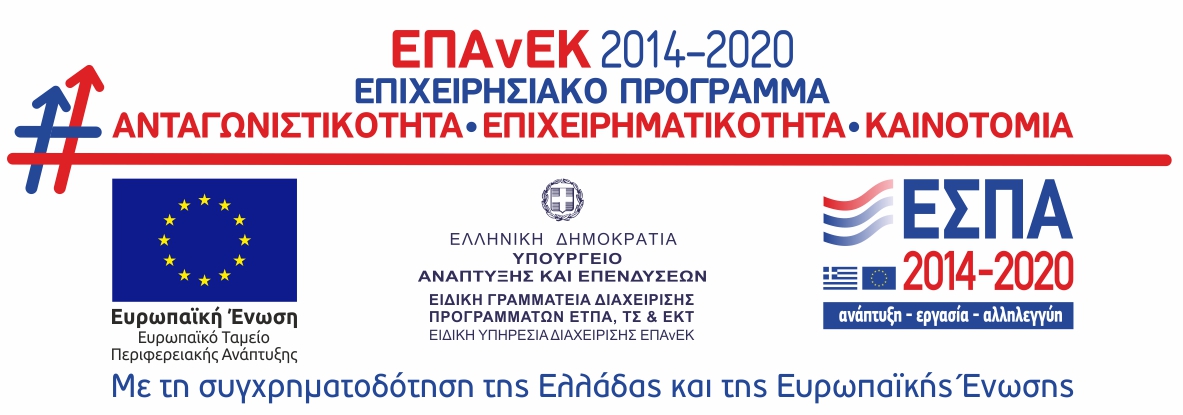The current 2014-2020 Programming Period of the European Union offers many opportunities to fund innovative ideas and projects. In particular, the NSRF (Corporate Pact for the Development Framework) 2014-2020 is the basic strategic plan for the development of the country with the assistance of significant resources from the European Structural and Investment Funds (GRNET) of the European Union. These Funds are:
- the European Regional Development Fund (ERDF) which finances mainly Infrastructure
- the European Social Fund (ESF) which finances structures and actions of social content and purpose
- the Cohesion Fund (TA) which finances Infrastructure and actions mainly in the fields of Energy and Environment
It is obvious that the Public Investment Program (PIP) of our country can not meet the existing needs on its own through the State budget and the utilization of funds from the aforementioned Funds now lies solely in the capacity and capabilities of public and private entities. Essentially, the public bodies of our country, apart from their regular budget and the same resources that they have or are given, must take advantage of the financing of GRNET on their own and on their own initiative. In this way, on the one hand, they will be able to develop and implement the policy adopted by them, on the other hand, they will be able to complete the fulfillment of their obligations in the field of their responsibilities.
The NSRF 2014-2020 consists of 20 Programs, of which 7 are Sectoral and 13 Regional:
- The Sectoral Programs concern one or more sectors and have as geographical scope the whole country. They are managed by the Special Management Services (EYD) of the competent Ministries.
- The 13 Regional Operational Programs (ROPs), one for each of the 13 Greek Regions, include regional actions. They are managed by the Special Management Services (EYD) of the respective Regions.
- In addition, the 5 bilateral programs are in progress, concerning the cooperation with an equal number of countries that are neighbors of Greece. Of these countries, three are members of the European Union (Cyprus, Bulgaria and Italy) and receive ERDF funding, while the other two are candidate countries (Albania and the former Yugoslav Republic of Macedonia) and are funded by the Pre-Accession Assistance Facility (MPA).
- The multilateral Territorial Cooperation Programs, in which regions of our country participate, are also in progress, they are the following:
Adriatic-Ionian (transnational)
MED (transnational)
MED ENI CBC (cross-border)
Black Sea basin ENI CBC (cross-border)
INERREG EUROPE (interregional)
Balkan Meditteranean (transnational)
Finally, the Territorial Cooperation programs include the URBACT and ESPON cooperation networks, as well as INTERACT, which provides technical support to all European Territorial Cooperation programs in the European area.
SUSTAINABLE DEVELOPMENT CONSULTANTS with extensive experience in the design and implementation of similar projects, provide a wide range of services in the public and private sector, including projects of environmental management, culture, tourism, water resources management and sustainable development:
- Project design with innovative ideas and approaches
- Support in finding partners for all programs
- Successful implementation processes of the integrated projects by monitoring the procedures and the progress of the implementation of the projects of all partners
- Systematized project monitoring methods using progress and implementation indicators
- Strengthening the implementation of practical solutions (hardsolutions) with emphasis on the creation of innovative and modern infrastructure
- Integrated monitoring and project management services using progress, performance and outcome indicators
Our goal for your organization, in addition to the successful completion of the project, is to strengthen the capacity of your executives (capacitybuilding) to plan (planning), manage (management) and capitalize (capitalize) on the results of the project, building the future.



